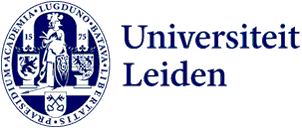
Atherosclerosis resembles an autoimmune disease. Marie Depuydt graduated on this topic, with honours
In addition to cholesterol and high blood pressure as risk factors for atherosclerosis, we may need to address our own immune system to prevent a heart attack or stroke. Marie Depuydt revealed which cells exactly reside in the atherosclerotic plaque that narrows an artery. The presence of a diverse set of T-cells suggests autoimmune-like characteristics for this disease. She obtained her PhD with honours on March 28.
Marie Depuydt graduated at an interesting moment as a pharmaceutical scientist. In 2017, there was increasing use of a technique that allows us to precisely determine which cells are present in, for example, a tumor or specific tissue in the human body. All cells in the body have the same DNA, but they do not all use this information. Each cell type uses a relatively small portion of their DNA to make RNA and then proteins. By ‘reading’ the RNA, you can determine how many cells of each cell type are present in a piece of tissue.
Plaques cause strokes or heart attacks
A research consortium of the Dutch Heart Foundation, including Depuydt's supervisors, decided to apply that technique to human atherosclerotic plaques. Such plaques filled with cholesterol in the arteries can, for example, cause strokes or heart attacks. Cardiovascular diseases are one of the most common causes of death worldwide. Each year, 17.9 million people die from them globally, especially in the Western world. The vast majority of these deaths are due to atherosclerosis.
Depuydt: ‘For decades, there has been attention to the inflammatory response that can be measured in atherosclerosis. But the exact role of the immune system was unclear.’ Depuydt, as a PhD candidate, was asked to set up the technique to allow the identification of the cell types in such plaques.

A cellular atlas of atherosclerosis
She succeeded in establishing a cellular atlas of atherosclerosis: she determined which cell types were present in plaques from eighteen patients. The scientific article describing these findings has been cited several hundred times since late 2020. What did that atlas show? Depuydt: ‘We found a remarkable frequency of T-cells in all those plaques. These white blood cells react like a lock to a key: they have learned to respond to a specific antigen molecule, and then they divide rapidly. All daughter cells respond to that same substance and start clearing this substance.’
Anti-inflammatory drugs are not a solution
In principle, T-cells respond to a foreign protein, for example, a specific protein on the cell wall of a bacterium or on a virus. A selection takes place in the organ where they are developed, the thymus: a T-cell that strongly reacts to a self-protein is normally rejected and does not enter circulation. In autoimmune diseases, such a T-cell does react to a self-protein.
In a large clinical study, the CANTOS trial, patients who had experienced a heart attack were treated with anti-inflammatory drugs. ‘You could see very nicely that fewer patients from that group had second heart attacks than patients from the control group,’ says Depuydt. ‘But that treatment also undermined their entire immune system, upon which they became more susceptible to bacterial infections.’ Such a one-size-fits-all treatment is therefore not a solution.
The crucial question: what key fits the lock?
The crucial question is which key exactly fits this T-cell lock, or in other words, which substance the T-cells in plaques react to. Depuydt: ‘If we know that, we can try very specifically to prevent some T-cells from reacting to it and becoming active.’ Therapies to eliminate harmful T-cells are already in development for rheumatoid arthritis and type I diabetes. Depuydt already established that the T-cells from plaques resemble the helper T-cells that contribute to the disease in patients with psoriatic arthritis .
‘Lifestyle, heredity, and aging remain important components’
Will there be a completely new approach and treatment for cardiovascular diseases soon? Depuydt: ‘It will mainly be an addition. The autoimmune aspect that we uncovered is not the whole story. Factors like lifestyle, heredity, and aging remain important components.’

Scientific polymath
Depuydt continues her work as a postdoctoral researcher to follow up on her discoveries, on which she graduated at the end of March. With honors. Is her success mainly due to applying for the right PhD position at the right time? According to her supervisor Bram Slütter, certainly not. He emails: ‘This work could not have succeeded without Marie's ability to collaborate with doctors, patients, and scientists with different expertise. You could safely call her a scientific polymath.’
Text: Rianne Lindhout
Image above article: CC BY-SA 4.0 - scientificanimations.com
